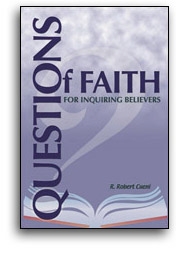SermonStudio
Where Is God When Bad Things Happen To Good People?
Bible Study
Questions Of Faith For Inquiring Believers
It was late February in one of those long, cold northern Michigan winters. The families were close friends. The parents often socialized. The children attended the same school. They looked for something they could all do together. The lake had been frozen for more than a month and snowmobiling around the shoreline seemed a possibility. The men checked the condition of the ice on Monday evening. It was safe. Early Saturday morning, the parents cranked up the family snowmobiles and attached sleds for the children to ride behind them. All eight of them headed on to the ice.


